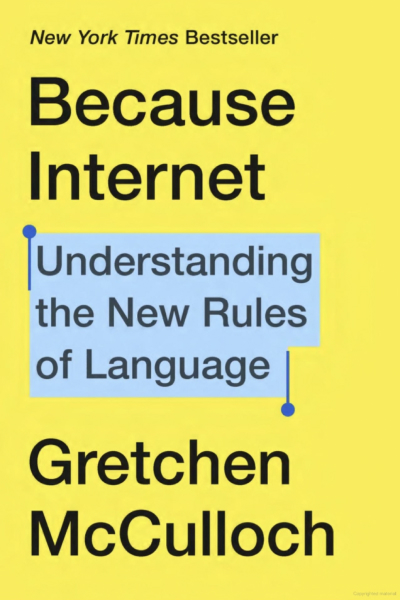Notes and reflections
This book is alllll about internet linguistics. Internet linguistics are a new branch of linguistics that examines new language patterns that have emerged as a result of the internet. This kinda stuff:

Gretchen McColluch points out that the internet is the first place where casual writing has entered the mainstream – that is, people on the internet write more than they ever have in any other time in history.
McCulloch mentions casings (lol vs. LOL), and keysmashing (agdj;kasgjk vs. ~Iw=L2/Bl_W) as examples of linguistic rules that arose from the internet. People will retype keysmashes to make it look right, and she points out how it’s even distinguishable from cats walking across the keyboard (tfgggggggggggggggggggsxdzzzzzzzz). That is to say, these new linguistic rules have given us new ways of making meaning out of new strings of characters which would be completely unintelligible to anyone unfamiliar with internet culture.
Unordered notes
- Moving towards future prose as much as possible rather than referring back to how a word has always been used 1:20;00
- Jenny sundyen? On the internet, you write yourself into existence. 1:55:00
- Typographical tone of voice
Pages that link here
Emoji vibes and why they matter
essayLately, I’ve been bugged by interested in how emojis have different vibes depending on what platform you’re on. For example, the joy emoji looks different depending on what app or operating system the viewer is...
Codeswitching
noteThe way I type on Teams is different from me texting my sister. Also covered in Because Internet. It also impacts the way that I use emoji emojis with different people as well.
Emojis
noteEmoji can be a useful tool to communicate nuance in spaces where body language can’t do the communicating.
